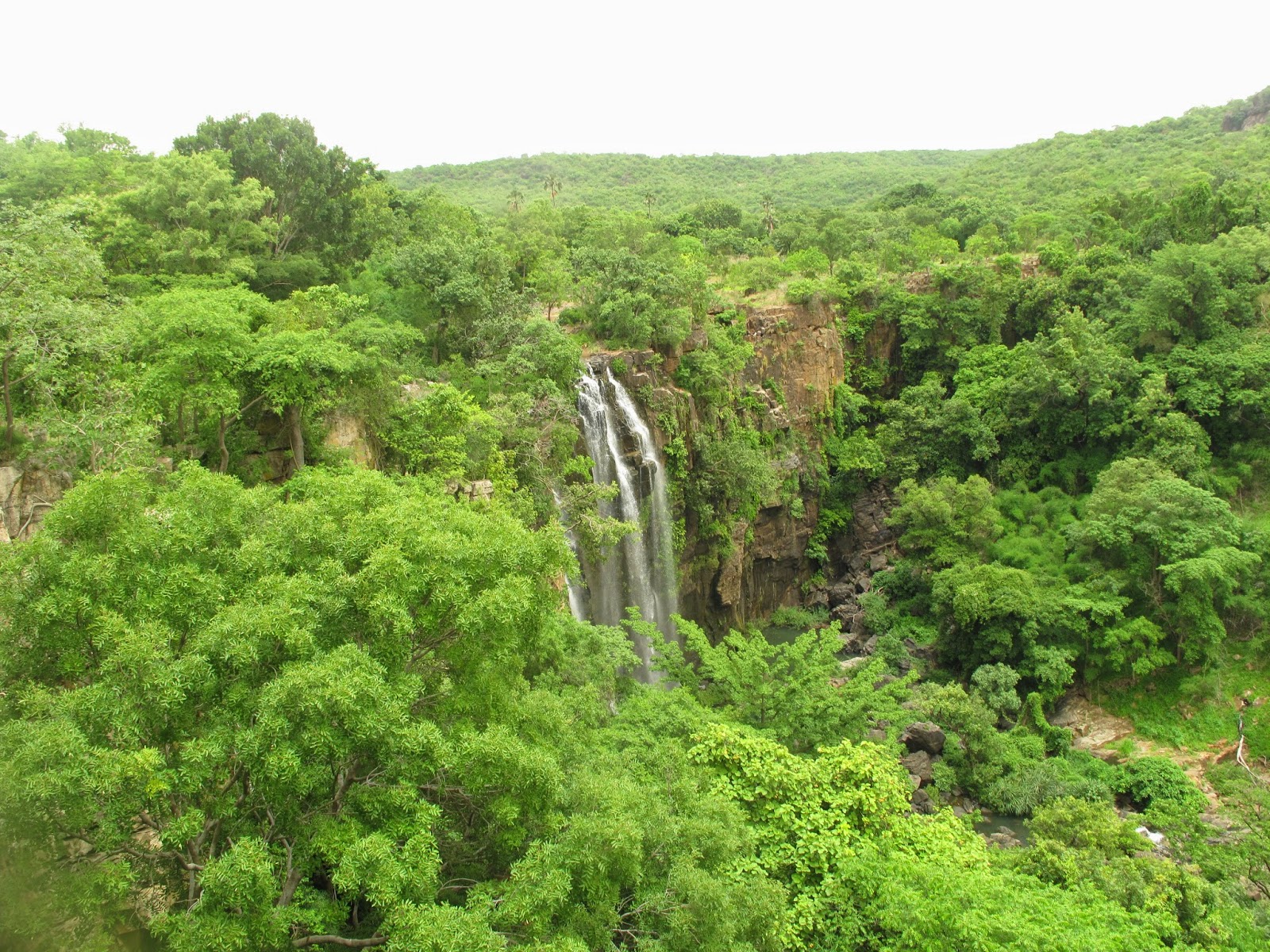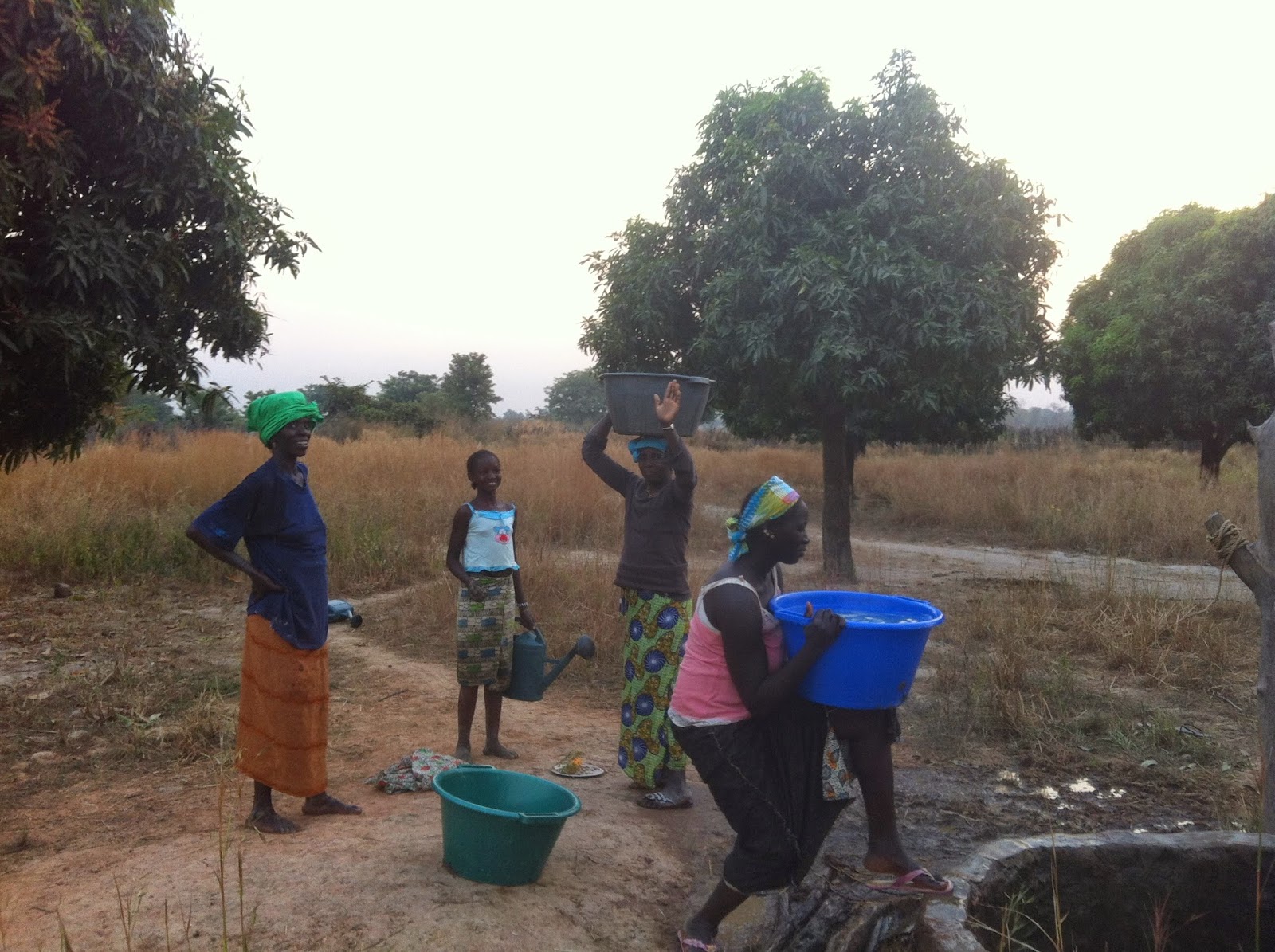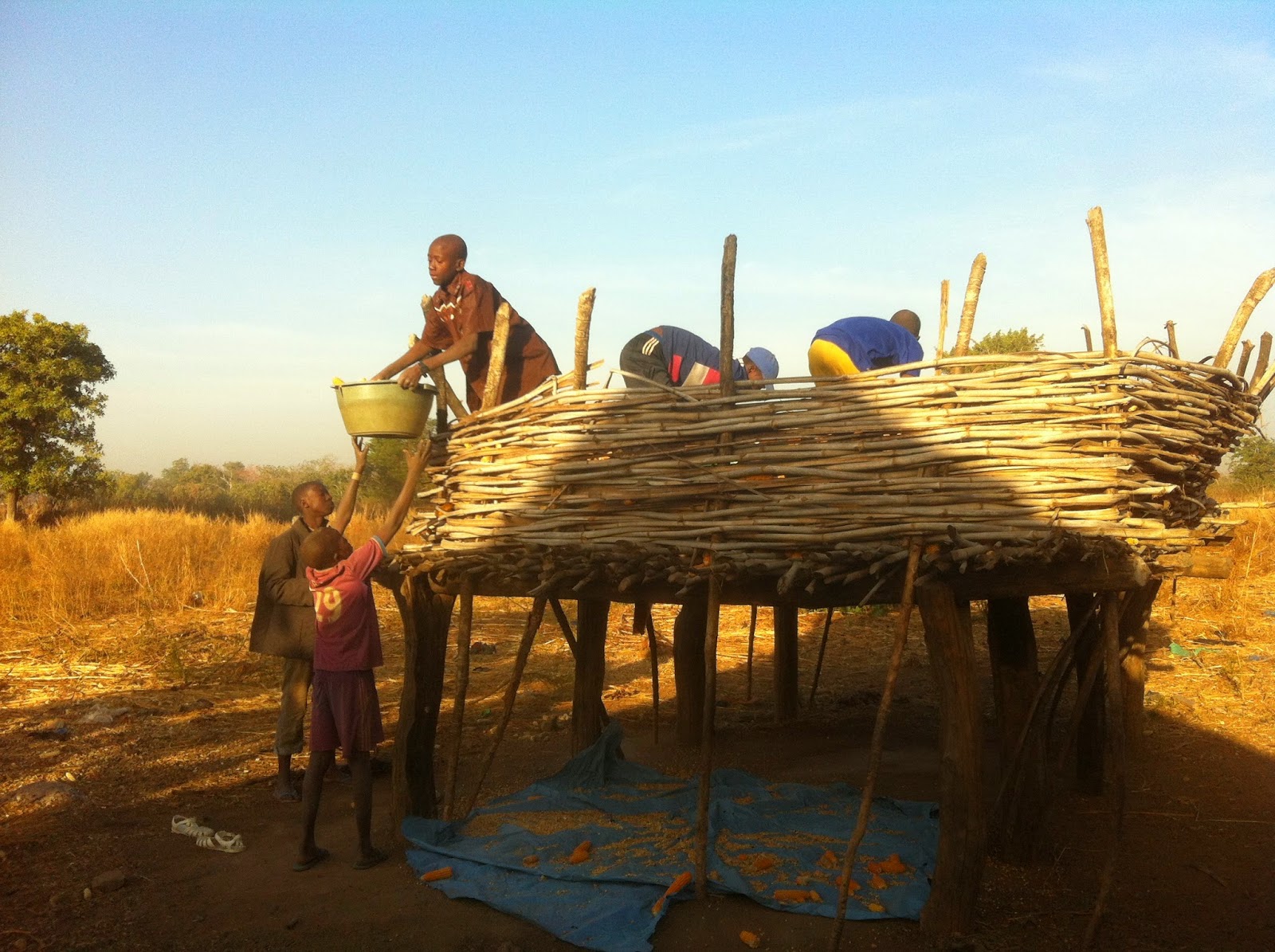 |
| New Years day 2014 Camping on top of the Guinean plateau above Segou. |
 |
| Dar Salaam Women's group breaks ground on a new garden space. The fence here did not last long, but we will be erecting a new one soon. |
 |
| Fresh off the bus, the new health stage arrives in early April. Fresh, clean, optimistic. |
 |
| We cooked minaanŋo (bush buck) to welcome the new volunteers, which was killed early that morning by Mamadou Minté, who is my primary work partner in Dar Salaam. |
 |
| My namesake, Ousmane Minté, and a few of his children in our compound. |
 |
|
Kedougou in preparation for the arrival of President
Macky Sall.
|
 |
|
The people of Kedougou prepare for the arrival of
President Macky Sall.
|
 |
|
My GoPro™ Solar Charger set up in my backyard pumping
out power at the height of the hot dry season. Should I send this to them?
|
 |
| On the road to Kolda in mid April. |
 |
|
April. Ian and Scott on a scorching laterite road in the
heat of the day, finishing the ride to Kolda.
|
 |
|
Carson and her counterpart in her village,
Timandalla.
|
 |
| Mamadou Minté constructing a bridge that will serve as a rainy season link from Dar Salaam and a number of other villages to Kédougou over the otherwise uncrossable Silliŋ Creek. |
 |
|
It has held up thus far.
|
 |
| Mamadou's wife Fatoumata with their youngest daughter Mariamma |
 |
| Bassirou is a determined worker and Ismailia is an aspiring practitioner of karate. |
 |
| El Hadji and Bassirou bringing back a load of polewood for my garden fence, surrounded by the greenery of rainy season. |
 |
| The fence in progress |
 |
| View from my backyard as a rainy season storm rolls in. |
 |
| That's me giving a speech at the 4th of July. |
 |
| 4th of July cornhole game. |
 |
| Putting the new bridge to good use. We set out after the 4th to find a waterfall. |
 |
| A supply stop in Dindefello. Myself, Carson, Daniel and Jim. |
 |
| We travelled in style. |
 |
| Kedougou. It's beautiful. |
 |
| Ingli Waterfall. A taba tree taunted us above this idyllic pool with ripe fruit. |
 |
| Ingli. |
 |
| Badon, a village close to Macko, where I travelled to do some malaria prevention work. |
 |
| Looking out my backdoor during the rainy season right after a short vacation. |
 |
| PCV Tyler Young, who lives 20 km south west of me came out to help orchestrate the planting of a live fence along the recently completed fenceline. |
 |
| Father and son. Little Ibrahima and his dad Youssoupha. |
 |
| Three Pulaar kids who live in Dar Salaam. Papisse, Maimoona and Ousmane. |
 |
| Sheep travel in style and Talibé beggar boys travel in bands. |
 |
| PCV Tyler Young teaches the technique of SRI (System of Rice Intensification) at an open field day in Segou in October. |
 |
| Jubel, who recently finished his service, records a music video at one of Kédougou's most epic spots, "The Spires." Ian Yau films and Daniel Hoffman plays drums. |
 |
| Duwa Condé adds fish to a freshly dried concrete pool to begin a system of home grown aquaculture on the Master Farm. |
 |
| Boubacar, Tigida and Omar pet a donkey. |
 |
| "Host aunt" Philly Minté (L) and "Host Mother" Bintu Minté show off freshly pounded baobab leaf powder. It is delicious and very nutritious. |
 |
| L to R: Omar, Mamadou, Tigida (back), Suwaro (front), Ibrahima. Omar, Mamadou and Tigida all have the same dad but different mothers. Suwaro and Ibrahima are full brothers. |
 |
| A typical Mauritanian boutique at night in Kédougou. |
 |
| Talibé harvesting rice. November. |
 |
| On Fridays my "host dad" goes into Kédougou to pray with other Imams, so we eat lunch in the antechamber of my hut. |
 |
| Aminata Minté, my one host mother who is not currently pregnant digs a bed at the Dar Salaam Women's Garden. |
 |
| And the besst part of growing lots of peanuts is that we get to eat delicious plates like Tiga maxafeŋo (peanut sauce, sometimes known as mafé) on corn. Roughly comparable to Thai peanut sauce. |
 |
| Village chief Mamadou Minté erects gabions in order to protect young mango trees through the dry season. |
 |
| Walking through the recently harvested rice fields of Dar Salaam at sunset. |
 |
| L to R: Damba, Tigida, Camara, and Sylla. Pulling water from the well to give their gardens an evening watering. |
 |
| PCV Daniel Hoffman engaging in a match of Senegalese wrestling. (La lutte Senegalese) |
 |
| PCV Tyler Young in front of a typically over-loaded bus. |
 |
| 'Host mom' Aminata Minté pours rice into the wind to blow off the chaff. |
 |
| That's my cat, Gaston. He was being annoying so I put him into the top of my Papaya tree. |
 |
| Fatoumata pours out steamy spoonfulls of koojio, a sweet corn porridge that we eat for breakfast every day. Little Mamadou rocks a onesie. |
 |
| Har working talibé boys take recently harvested corn from the drying rack to remove the grains from the cob in order to be stored. |







No comments:
Post a Comment